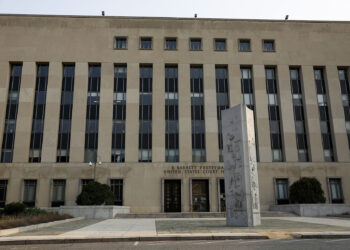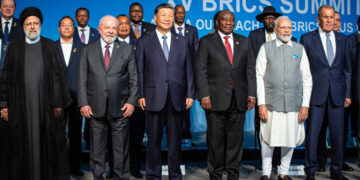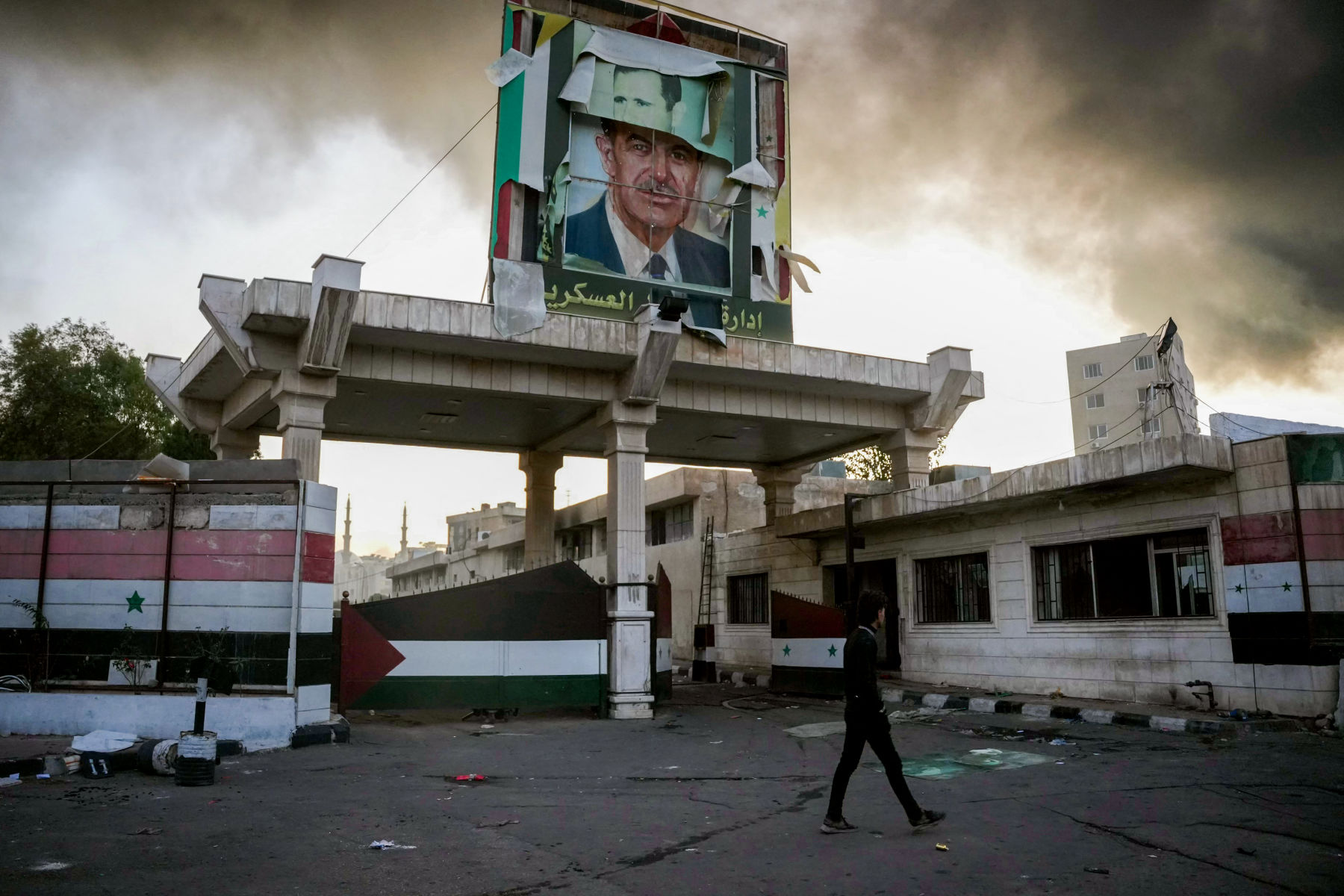Mairav Zonszein is the Senior Analyst on Israel-Palestine at the International Crisis Group.
It may look like a sudden development, but the return of Benjamin Netanyahu as Israel's prime minister and the entry of far-right ultranationalists as the third-largest party in the Knesset are the culmination of a protracted right-wing drift in Israeli society. Contrary to what Thomas Friedman wrote in a recent column under the headline "The Israel We Knew Is Gone," developments over the past few decades have all led up to this reality—which he calls "previously unthinkable"—of anti-Arab Jewish supremacists assuming senior positions in the Israeli government.
The story of this election is the success of the far-right, unabashedly anti-Arab and religious Zionist bloc of three parties: Jewish Power, Religious Zionism and Noam. The face of this bloc is Jewish Power's head Itamar Ben-Gvir, a resident of the Kiryat Arba settlement near Hebron. A man the Israeli army refused to draft due to his extremist views, Ben-Gvir has been convicted of incitement to violence and support for terrorism because of his links to the outlawed Kach party of Meir Kahane, the radical American-Israeli rabbi who died in 1990. Ben-Gvir regularly shows up at points of friction with Palestinians, like East Jerusalem's Sheikh Jarrah neighborhood, shouting incendiary slogans about Arabs and brandishing his own personal firearm. Three weeks before Prime Minister Yitzhak Rabin's assassination exactly 27 years ago, TV cameras notoriously captured Ben-Gvir boasting that he had managed to steal the emblem off the prime minister's car and threatening that "we'll get to him, too."
Ben-Gvir epitomizes the most violent, belligerent and racist elements of Israeli Jewish society. His entry into government, along with the rest of the Jewish supremacist Religious Zionism alliance that won 14 seats in parliament, is certain to embolden radical Israelis and exacerbate Israel's abuses of Palestinians, whether in the occupied territories or in Israel itself.
Developments over the past few decades have all led up to this reality of anti-Arab Jewish supremacists assuming senior positions in the Israeli government.
- Mairav Zonszein
When you look at ongoing Israeli policies toward the Palestinians, and at what previous Netanyahu governments and even the outgoing coalition of Yair Lapid and Neftali Bennett have done over the past year and a half, it becomes apparent that the emboldened far right is not offering a break with the past, but a familiar trajectory for Israel. The ideas they are pushing have already been normalized, and to an extent implemented, for many years. The difference is that the far right is doing it loudly and brazenly, with little apparent consideration for the long-term ramifications for Israeli security.
Ben-Gvir, for example, champions the right for Jews to pray at the Temple Mount, or Haram al-Sharif, in Jerusalem and is part of a movement—of which his wife is a known activist—to change the decades-long status quo there, which is based on regulated non-Muslim access and a prohibition on non-Muslim praying. Ben-Gvir is seeking to head the Public Security Ministry in the new government, which oversees Israeli policies on the holy esplanade, a place that has repeatedly become the epicenter of violence between Israeli forces and Palestinian worshippers, most recently and graphically in May 2021. But for years now, Israel has allowed for a deterioration of that status quo by providing security for groups of Jewish worshippers to visit the Temple Mount and allowing them to conduct communal prayers openly. Netanyahu has in the past, and again recently, assured he would maintain the status quo for Jerusalem's holy sites—as did outgoing Prime Minister Yair Lapid—but in practice, it has been steadily changing for years.
The Religious Zionism list has also promised to expand and legalize settlements, push for formal West Bank annexation and put an end to the Palestinian Authority, or at least Israel's cooperation with it. This is not new, either. The settlement enterprise in the West Bank and East Jerusalem is as old as the military occupation, sanctioned by every Israeli government since 1967. Netanyahu already pushed for annexation of most of the West Bank in 2020 as part of then-President Donald Trump's sham "Peace to Prosperity" plan, which he then took off the table to enable normalization between Israel and the United Arab Emirates in the U.S.-orchestrated Abraham Accords. But West Bank annexation has now entered Israeli public discourse as a legitimate move. When settlers reoccupied Homesh, a West Bank settlement dismantled by Prime Minister Ariel Sharon in 2005 as part of Israel's withdrawal from Gaza, nearly a year ago, Defense Minister Benny Gantz did not enforce the law and evacuate them, thus giving continued settlement expansion de facto legitimacy.
For his part, Ben-Gvir has talked about giving police and soldiers more lenient open-fire regulations to shoot at Palestinian assailants, but this is also not new. This year has already been the deadliest for Palestinians since 2015, with Israeli soldiers regularly shooting at Palestinians, even if they aren't posing an immediate threat. The killing of journalist Shireen Abu Akleh in May, while reporting on an Israeli military raid in Jenin, was just the most egregious example.
Ben-Gvir has spoken about deporting Palestinian citizens deemed "disloyal" to the state and setting up armed militias in mixed Arab-Jewish cities to protect Jewish citizens. None of these ideas are new in Israeli society.
- Mairav Zonszein
Elements of the winning coalition in last week's election—not just the Kahanists like Ben-Gvir, but also the ultra-Orthodox religious parties in Netanyahu's own coalition—are committed to strengthening Israel's Jewish character at the expense of democratic norms. Here again, there is continuity, rather than some break with the past. Israel already prioritizes Jewish rights over Palestinian rights in Israel proper—a hierarchy that was formally enshrined in the 2018 Jewish nation-state law that declared, among other things, that "the right to exercise national self-determination in the State of Israel is unique to the Jewish people."
On all these issues, the international community, and specifically the U.S., has allowed Israel to act with impunity. This, in turn, has enabled Israel's right to move even further right, helping to build up far-right and ultranationalist factions, and giving a green light to leaders like Netanyahu to cooperate with Ben-Gvir and other Jewish extremists—something he had largely avoided during his long political career. But now, Netanyahu knows Israel will almost certainly not have to pay a real geopolitical price for having Jewish supremacists in government.
The far right's entry into government could worsen Israel's treatment of its Palestinian citizens, while also affecting domestic issues regarding religion and state and the judiciary. Ben-Gvir has spoken about deporting Palestinian citizens deemed "disloyal" to the state and setting up armed militias in mixed Arab-Jewish cities of Israel to protect Jewish citizens. None of these ideas are new in Israeli society, of course, and it remains to be seen whether the far right will be able to put all its threats into action, considering Netanyahu's political calculations as Israel's longest-serving prime minister and a track record of being risk-averse. He will likely need to reach out to more moderate political leaders, eventually, if he is to maintain his hold on power—but only after he forms a new Israeli coalition that can amend the rule of law enough to annul his corruption trial, leading Israel even further away from democracy.





































